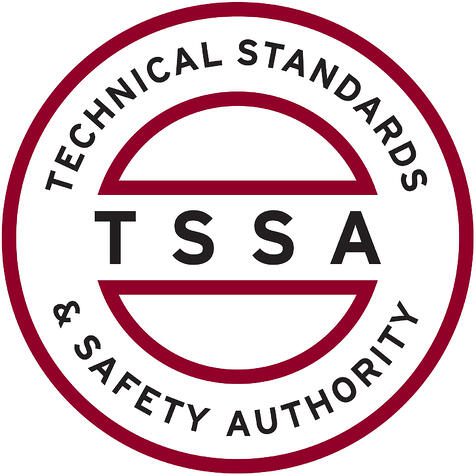
With adequate maintenance, your air conditioner can run for 15 years or longer. But even the most well-maintained air conditioner will need to be replaced eventually.
When you’re beginning to plan for air conditioning installation in Dresden, we know that the price tops your list of questions. The good news is that installing a new air conditioner could be more economical than you think it is, due to rebates, our special offers and financing for qualified customers. You’ll also enjoy improved energy efficiency, which will usually pay off over the years through cheaper electricity bills.
Here’s what to expect when you’re getting a new air conditioner.
The Best Time to Schedule Air Conditioner Replacement
Knowing when to repair or replace your air conditioner can be hard. Here’s what our professionals suggest.
Replace
- Your air conditioner is past 10 years old. While some could work longer, many air conditioners work for around 15 years with routine maintenance. We suggest prepping for air conditioning replacement close to the 10-year mark. Even if you install a new one when it’s only a decade old, the U.S. Department of Energy says this change could save you 20-40% on cooling costs.
- You’ve skipped regular maintenance for too long. Much like a car, your cooling system needs annual air conditioning maintenance. Skipping this crucial service can lead to lower efficiency, more recurring repairs and even a decreased life span.
- Your air conditioner needs frequent or expensive repairs. Needing air conditioning repair is typically the consequence of skipping maintenance But as your air conditioner ages it’s more likely to suffer a major malfunction. When repairs are greater than half the cost of a new air conditioner, we recommend getting a new one.
- Your residence is uncomfortable. If your residence feels too sticky or you’re having hot and cold spots in specific spaces, your air conditioner could be having a hard time keeping up. This is a sign it’s time to replace it.
- Your utility bills are costly. Your air conditioner loses efficiency as it becomes older. Consequently, it may need to work more frequently or longer to keep your house at your desired setting. Newer air conditioners have the latest energy-efficient technology to keep your home comfortable and electrical expenses reasonable.
- Your air conditioner runs on R-22 refrigerant. If your air conditioner was installed before 2010, there’s a good chance it has Freon. Also known as R-22, this refrigerant is no longer being produced due to its bad effects on the environment. You can continue to use your air conditioner, but if it were to have a refrigerant leak, solving that would be extraordinarily expensive. This is because R-22 is only available in limited, recycled amounts.
Repair
- Your air conditioner is no more than 10 years old. If your air conditioner is newer, it’s best to repair it.
- Repairs aren’t common or reasonable. The best way to stop unanticipated repairs is to have annual service done. But when repairs are only needed intermittently or are reasonable, repair your air conditioner.
- Your air conditioner has a valid warranty. Most air conditioners come with a 5- to 10-year limited warranty that usually covers the compressor. Your exact warranty length is determined by your manufacturer, but it offers valuable protection in the event of a major failure. If your air conditioner is covered by warranty, we suggest fixing it.
General Estimate of Air Conditioner Cost
Most homeowners spend around $4,631 on a new air conditioner, per national averages compiled by HomeGuide. Air conditioner cost averages often range from $3,350 to $5,912, but your exact cost {might|could|may] vary.
There are a couple of details that impact your total cost, including:
- The air conditioner model you choose, because more energy-efficient ones are higher priced.
- The size your home needs.
- If you need to replace your ductwork, which can happen if your ductwork is aging or inefficient.
We provide free estimates at McFadden Heating & Cooling so you can be confident you’re getting a good deal. And with our full range of air conditioners, there’s an energy-efficient model that accommodates just about any budget.
The Size of the AC System
Air conditioner size is crucial. A system that’s undersized will have difficulty keeping your house cool. And one that’s oversized could turn on and off too frequently, or short cycle. This act can inflate your utility expenses and wear your air conditioner out faster. This might also cause temperature variability and make your residence feel less cool.
At McFadden Heating & Cooling, our technicians have many years of experience in properly sizing and installing the right air conditioner for your home. The right size depends on how large your house is, along with a few other things. Some of the most common sizes include:
- 2 ton, which cools up to 1,000 square feet
- 3 ton, which cools up to 1,600 square feet
- 4 ton, which cools up to 1,900 square feet
- 5 ton, which cools more than 2,000 square feet
Other factors that can influence air conditioner size are:
- The climate in Dresden.
- Ductwork quality and age.
- How many windows you have and the style, as large or picture windows might be less efficient.
- If your house receives more sun or shade.
- Insulation quality and depth.
- How many people are in your household.
Seasonal Energy Efficiency Ratings
Your air conditioner’s efficiency is impacted by its SEER, or Seasonal Energy Efficiency Rating. This number measures how efficiently it consumes electricity to create cooling. The bigger the ranking, the more efficient the air conditioner is.
When you’re buying a new air conditioner, it’s important to know:
- Dated air conditioners are ranked around 8-9 SEER.
- Updated air conditioners start at 13 SEER. Ones installed in the southwest and southeast must be no less than 14 SEER due to U.S. Department of Energy mandates. As of 2017, these SEER rating requirements have saved homeowners trillions of dollars.
- ENERGY STAR®-certified air conditioners begin at 14.5 SEER.
- Higher SEER-rated air conditioners come with more features to help you save more. These features may include variable-speed cooling. Instead of going at full blast continuously, these air conditioners can reduce blower speeds adjusted for your cooling needs. This leads to quieter and more energy-efficient comfort. While an air conditioner with a greater SEER rating is usually more expensive, it could be eligible for extra rebates. And the energy savings over its life span might help it pay for itself.
Start Your Air Conditioning Installation with McFadden Heating & Cooling Now
When you’re planning for air conditioning replacement, the company who puts it in is just as critical as the model you choose. McFadden Heating & Cooling is one of the most trusted names for air conditioning installation in Dresden. From helping you choose the recommended solution for your home to going over financing options to professional installation, working with us is a breeze. Call us at 519-683-2339 to start right away!




